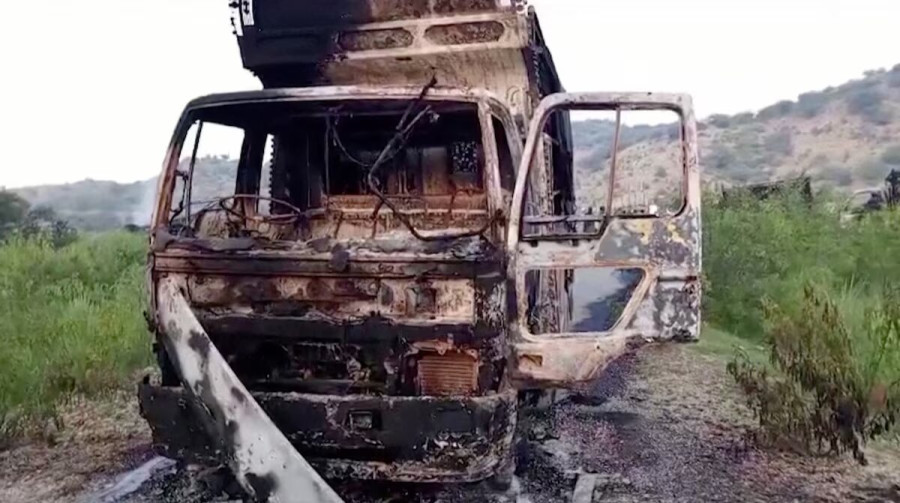Columns
Pakistan’s Balochistan challenge
The Baloch grievances have lingered for decades, but the government is not even close to solving the problem.
Smruti S Pattanaik
On the night of August 25, in six separate incidents in Pakistan, the Majeed Brigade, a guerilla group of the Balochistan Liberation Army (BLA), launched an attack code “Operation Herof”. The coordinated and simultaneous attacks stunned the country. The militant group shot passengers, especially those from Punjab, travelling to and from Balochistan in Musakhel district after checking their IDs and singling them out. The militants set fire to several vehicles and launched suicide attacks on the security forces.
For the past few months, the BLA has been at the forefront of mounting attacks on infrastructures, especially those from the Chinese projects/investments and the Pakistani security forces stationed in Balochistan. Chinese engineers are being kidnapped and killed. These strikes have become a headache for Pakistan as Baloch rebels have targeted the Chinese-built Gwadar port. The Baloch perceived the Chinese investments, including modern residential colonies, as Islamabad’s well-planned move to colonise Balochistan to satisfy the elites from Punjab, especially the Army, by settling people outside the region and reducing the local Baloch population to a minority.
Balochistan, Pakistan’s biggest province, is sparsely populated and rich in mineral resources. In March this year, the Baloch insurgents attacked Gwadar port. However, the Baloch insurgency has not remained confined to Balochistan. The Majeed Brigade, formed in 2011, has carried out attacks in other provinces of Pakistan as well.
Baloch insurgency
The Baloch grievances have lingered for decades, and the government has adopted a short-sighted policy to solve the problem. Since the beginning, they have dealt with the problem through discredited Sardars and tried to strike deals. A young group of Balochs is now leading the movement, taking away the leadership from the traditional feudal elites. This is the fifth phase of militancy since its advent in 2001, and it has intensified following the killing of Nawab Akbar Bugti, a Pakistani politician and advocate of Balochistan’s rights, in 2006.
The insurgency in Balochistan and increased state security have resulted in the arrest, imprisonment and disappearances of several Baloch rights activists. This action has escalated the insurgency. For example, in 2022, the BLA attacked the Army camps in Panjgur and Naushki, and in March this year, they attempted to attack the Naval base in Turbat. However, the security forces neutralised the militants.
The BLA has claimed responsibility for several attacks on security forces and installations. In January 2022, an attack on the check post in Balochistan’s Kech district killed 10 soldiers. The BLA’s Majeed Brigade attempted to enter the Port Authority complex in March 2024, where two soldiers were killed. In November 2023, 14 soldiers were killed in Gwadar in an ambush.
Since the beginning, Pakistan has looked for a military solution to the insurgency, increasing the presence of security forces in the province. After the building of Gwadar Port, which the Chinese operate now, the Army has stepped up its operations to provide security. It has been involved in large-scale arrests of activists, but many security forces convicts have disappeared. Despite such protests, the state has failed to take action against those responsible for disappearances.
Islamabad had believed that developing ports and infrastructure would have a salutary effect on the Baloch insurgency. However, the development is seen as the Pakistani government’s internal colonisation of the mineral-rich province.
Baloch grievances
Besides historical grievances, Baloch’s independence has remained in BLA’s psyche since the 1947 partition. After the four phases of insurgencies in the province, the Pakistani government tried to play one group against the other to control the state until the assassination of the Baloch leader Akbar Bugti during the Musharraf regime. The killing changed the character of the Baloch insurgency, as females are now participating in suicide attacks.
Islamabad has attempted to counter Baloch nationalism by inserting Islamic elements in Balochistan. The northern part of Balochistan has remained restive as the Lashkar e Jhangvi, a Deobandi supremacist, terrorist and militant organisation based in Afghanistan, was allowed to operate there. Moreover, during the US presence in Afghanistan, Quetta had become a major centre for Taliban activities. The growing religious extremism is visible as all-girls schools are being ordered to close. The Baloch have often considered themselves as minorities in their province as state-led colonisation of the province has become the norm. There have been several cases of Shia killings in Balochistan.
The Aghaz-e-Haqooq-e-Balochistan Package (a scholarship for talented Balochistan students), announced in 2009 by the Syed Yousuf Raza Gillani government, was criticised for being too little, too late. However, the most important part of the package was the payment of Rs120 billion in the next 12 years for the arrears of the Gas Development surcharge from 1954-91.
The province’s economic backwardness is always attributed to Islamabad’s stepmotherly attitude. Gas extraction from the province, especially Sui gas, is considered a resource extraction that benefits other provinces except Balochistan. There have been accusations that the Pakistani state is exploiting rich mineral resources without paying royalties to Balochistan’s government.
According to “The Voice for Baloch Missing Person”, there have been 7,000 registered disappearances since 2004. The Commission of Inquiry on Enforced Disappearances, appointed by the government in January this year, reported 2,752 active cases of enforced disappearances. The Baloch groups have organised several marches to Islamabad to underline the enforced disappearances. The government considered criminalising those who filed false disappearance cases in 2021 through the Criminal Law (Amendment) Bills to reduce the number of reported missing persons. However, the government was finally forced to reconsider its decision as criminalisation would prevent people from filing cases. Finally, in 2022, the amendment declaring enforced disappearances a heinous crime was passed.
According to a 2023 report, there was a 63 percent increase in violence in Balochistan. The Baloch have organised long marches to highlight their grievances, and Mama Baloch has led several of them. In June, the Baloch Raji Machi (National Gathering), organised by the Baloch Yakjehti Committee, protested in Gwadar against extrajudicial killings and disappearances to protect the rights of the Baloch people. Three protestors were shot dead by the Frontier Corp forces during the gathering.
The recent attacks are going to compound Pakistan’s security predicaments. They will affect regional stability in the volatile Afghanistan-Pakistan region where the Baloch people live in three countries—Iran, Pakistan and Afghanistan.




 9.7°C Kathmandu
9.7°C Kathmandu















